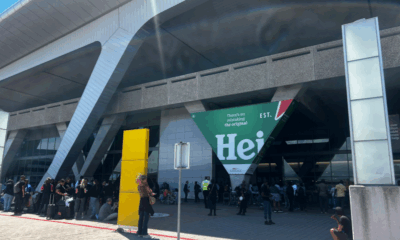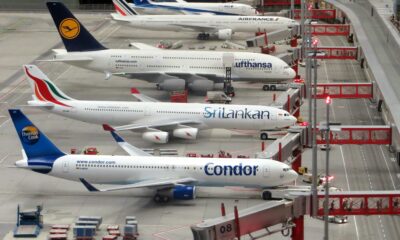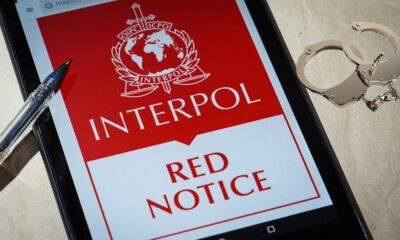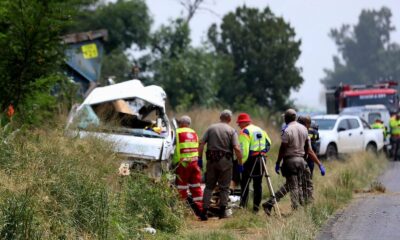News
Bomb Expert vs. the System: Airport Safety Whistleblower Lays Criminal Charges Against SA Aviation Authorities
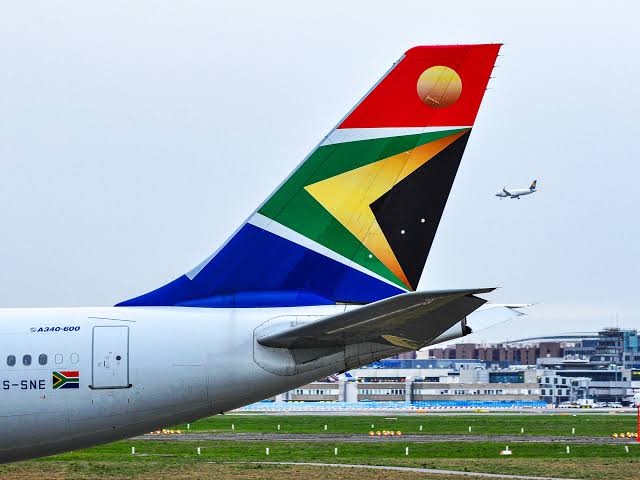
Bomb Expert vs. the System
Inside the explosive showdown between a safety whistleblower and South Africa’s aviation authorities
South Africa’s aviation sector is no stranger to turbulence, but this time the storm isn’t in the sky, it’s unfolding on the ground, inside the country’s biggest airports.
Explosives and bomb-safety expert Jimmy Roodt has taken the extraordinary step of laying criminal charges against Airports Company South Africa (Acsa), the SA Civil Aviation Authority (Sacaa), and the leaders at the helm, Acsa CEO Mpumi Mpofu, Sacaa director Poppy Khosa, and soon also Transport Minister Barbara Creecy.
He claims they’ve ignored repeated warnings and allowed dangerous lapses in airport security to continue unchecked. The result, he says, is a system in “catastrophic non-compliance” with both local and international safety laws.
And after his dramatic 48-hour detention earlier this month, an ordeal he says included intimidation, humiliation, and threats to his life, Roodt believes the time for quiet reporting is long gone.
A Battle Years in the Making
According to Roodt, this confrontation didn’t begin with headlines or handcuffs. He says he has spent years trying to alert authorities about serious bomb-threat vulnerabilities at King Shaka, OR Tambo, and Cape Town International Airport.
His affidavit, submitted to SAPS, calls for:
-
A criminal docket to be opened
-
Urgent site inspections
-
Seizure of Acsa and Sacaa records
-
Referral of the case to the National Prosecuting Authority
He argues that in their conduct or lack thereof, the aviation authorities have violated:
-
The Civil Aviation Act
-
The Civil Aviation Security Regulations (2011)
-
The Occupational Health and Safety Act
-
ICAO Annex 17 and ICAO Doc 8973, the global gold standards of aviation security
Roodt says that if a bomb incident were to occur under current conditions, the failure to act on his warnings would make certain authorities “accomplices”.
The Warnings No One Wanted to Hear
Last month, The Citizen reported that Roodt had flagged a collapse in the “first tier” of South Africa’s bomb-threat mitigation system, the actual building infrastructure and its personnel. According to him:
-
Evacuation plans are designed for fires, not blast events
-
Signage and protocols don’t align with global safety standards
-
Airports are falling dangerously short of security requirements
He insists that international compliance has deteriorated to a point where expert evidence can no longer be ignored.
But ignored, he claims, is exactly what happened.
A G20 Visit Turns Into a 48-Hour Detention
Roodt’s story took a darker turn when he visited Nasrec, one of the major sites involved in the run-up to the G20 summit. He says he signed in, declared his purpose, and followed every procedure expected of a consultant in his field.
Yet shortly afterwards, he was arrested for trespassing.
What happened next reads like a scene from a spy-thriller gone wrong.
Roodt alleges:
-
He was held 8–10 hours in the G20 joint operations command room
-
He was denied food, water, bathroom access and his phone
-
Officers hurled insults and accusations
-
A senior officer told others they should “sort him out”
-
Police attempted to transfer him secretly to John Vorster Square, a location with a dark apartheid-era legacy
-
He never appeared in court because “someone higher up” prevented it
Finally, he was released on his own recognisance, shaken, and convinced that his safety and that of his family was at risk.
Government later dismissed the incident as a “stunt”.
Public Reaction: Fear, Skepticism, and a Sense of Déjà Vu
South Africans have responded to the story with a mix of concern and cynicism.
On X (formerly Twitter), comments range from:
-
“If he’s telling the truth, our airports are sitting ducks.”
-
“Why do whistleblowers always end up detained instead of heard?”
-
“Government calling it a stunt is too classic.”
There’s a long history in South Africa of experts raising red flags from Eskom engineers to rail safety auditors only to be sidelined or threatened. Roodt’s case taps into that broader pattern, fuelling the public’s unease.
Transport Department Responds, Sort Of
Transport department spokesperson Collen Msibi said the department had not yet been made aware of Roodt’s formal complaint.
Roodt, however, maintains that waiting for internal channels to work is no longer an option.
“Immediate investigation is critical,” he stresses.
With criminal charges now in motion, the ball is firmly in SAPS’ court.
A Fresh Angle: What This Says About Safety Culture in South Africa
Roodt’s allegations, whether ultimately proven or not, highlight a larger systemic question:
Is South Africa’s aviation safety culture robust enough to withstand real threats?
South African airports regularly rank among the busiest and most strategic on the continent. Yet they operate in a country where:
-
Security threats are rising
-
Public institutions have been weakened by years of corruption and hollowing out
-
Whistleblowers face harassment rather than protection
If Roodt is right, the implications are enormous.
If he is wrong, then the question becomes: why did authorities respond to a safety expert with detention instead of dialogue?
Either way, the aviation sector now finds itself under a spotlight brighter than a runway landing strip at midnight.
{Source: The Citizen}
Follow Joburg ETC on Facebook, Twitter , TikTok and Instagram
For more News in Johannesburg, visit joburgetc.com



